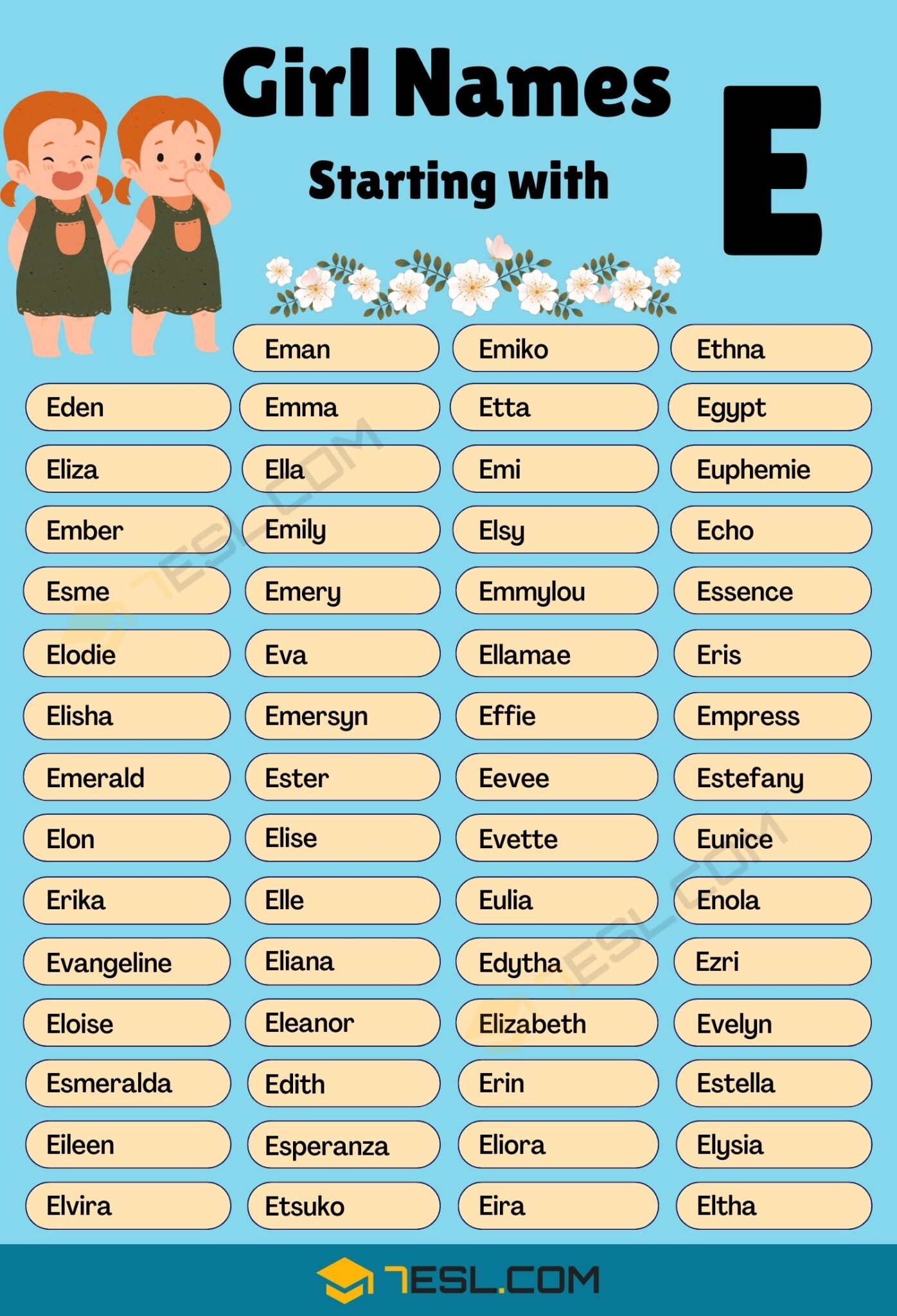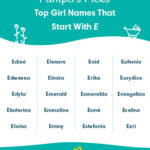German Names That Start With E
1. Emma
2. Emily
3. Elias
4. Emil
5. Erika
6. Ella
7. Erwin
8. Erik
9. Esther
10. Elisa
11. Eduard
12. Elisabeth
13. Elfriede
14. Edgar
15. Enno
16. Elina
17. Elmar
18. Elke
19. Elvira
20. Edith
21. Engelbert
22. Erna
23. Egon
24. Elfie
25. Erich
26. Evelin
27. Eugen
28. Engel
29. Ekkehard
30. Evi
More About German Names That Start With E
Welcome to our exploration of German names that begin with the letter “E”! German names are known for their strong and timeless qualities, often reflecting the rich history and deep cultural roots of this fascinating country. As we delve into this specific category, we will unveil a diverse array of names that not only embody the essence of German tradition but also celebrate the individuality and uniqueness of each person who bears them.
German names have a long-standing tradition of significance, with many families proudly passing down names through generations. Whether you have German ancestry or simply appreciate the beauty and melodious nature of German names, this compilation aims to provide you with a comprehensive and intriguing list of options that capture the spirit of this illustrious culture.
In considering German names beginning with “E,” you will encounter various meanings and historical contexts that showcase the depth and complexity of the language. From names that honor ancient warriors to those derived from nature or shaped by religious beliefs, each name invites us to explore different aspects of German heritage.
Let us embark on this journey by first examining the origins of German naming customs. Germanic tribes, such as the Franks, Saxons, and Lombards, played a significant role in shaping German naming conventions. These tribes bestowed names based on characteristics, environments, or personal attributes. As a result, German names often carry powerful meanings that reflect the qualities that parents wish to bestow upon their children.
In exploring the letter “E,” we discover a wealth of German names with diverse origins and associations, each with its peculiar charm. Emmerich, for instance, is a name with a rich history that traces back to medieval times. This name, meaning “ruler” or “powerful king,” embodies strength and nobility, encapsulating the spirit of leadership.
Elias is another notable German name beginning with “E.” Derived from Hebrew origins, it translates to “Yahweh is my God.” Widely recognized for its biblical significance, the name Elias has become a beloved choice among German-speaking communities, symbolizing devotion and faithfulness.
Exploring nature-inspired names, we encounter Emil, derived from the Latin word “aemulus” meaning “rival” or “emulating.” This charming moniker carries the grace and elegance of nature, often associated with gentle qualities and a harmonious spirit. It is no wonder that Emil has remained a popular choice for parents seeking a name that embodies a sense of tranquility and balance.
Moving beyond the realm of individuals, we also encounter German surnames starting with “E” that have gained prominence and recognition worldwide. Names such as Engels, Einstein, and Ehrlich have become synonymous with genius, contributing significantly to the fields of philosophy, science, and activism. These surnames bear witness to the incredible intellectual and cultural contributions made by individuals of German descent throughout history.
German names beginning with “E” offer a profound insight into the facets of this captivating culture. As you explore this comprehensive list, you will discover an assortment of traditional and contemporary names that reflect the rich heritage and diverse influences of Germany.
Join us on this odyssey through German names starting with “E” and celebrate the power, beauty, and individuality that each name represents. Whether you are seeking a name that pays homage to your German roots or simply drawn to the elegance and strength of German names, this compilation will undoubtedly provide you with inspiration and a deeper understanding of the captivating world of German nomenclature. Let the journey begin!
German Names That Start With E FAQs:
FAQ: German Names that Start with E
Question 1: What are some popular German names starting with the letter E?
Answer: Some popular German names starting with E include Emma, Emil, Erik, Ella, Eva, Elisabeth, Elisa, Erika, Emilie, and Eric.
Question 2: Are there any traditional German names beginning with the letter E?
Answer: Yes, there are several traditional German names starting with E such as Erwin, Erich, Edith, Elfriede, Ernst, and Ingeborg.
Question 3: What are some unique German names that start with E?
Answer: Some unique German names starting with E are Edda, Eike, Elsbeth, Enno, Eugen, Elvira, Egbert, Elvin, Eleonore, and Eberhard.
Question 4: Do German names that begin with E have any specific meanings?
Answer: Most German names starting with E do have specific meanings, such as Emma meaning “universal” and Erik meaning “ever-ruling.” However, meanings may vary depending on personal interpretations and cultural contexts.
Question 5: Can you suggest German names starting with E for boys?
Answer: Certainly! Some German names starting with E that are popular for boys are Emil, Erik, Eric, Eduard, Ernst, and Edgar.
Question 6: Are there any German names beginning with E that are suitable for girls?
Answer: Yes, there are many beautiful German names starting with E that are perfect for girls. Some examples include Emma, Ella, Eva, Elisabeth, Elisa, and Emilie.
Question 7: Are German names that begin with E commonly used in Germany today?
Answer: Yes, German names starting with E are still quite common in Germany today. Many parents continue to choose these names for their children due to their cultural significance and historical popularity.
Question 8: Can you provide some tips for pronouncing German names beginning with E?
Answer: In German, names starting with E are usually pronounced with a short “e” sound, similar to the “e” in “bet.” However, specific pronunciations may vary depending on regional accents and dialects.
Question 9: Are German names beginning with E considered gender-neutral?
Answer: Like in many languages, some German names starting with E can be used for both boys and girls, such as Emile. However, it is important to note that most German names have a distinct gender association.
Question 10: Are German names that start with E popular worldwide or mostly limited to Germany?
Answer: While German names starting with E are more commonly used in Germany, many of them have gained popularity worldwide. These names are often appreciated for their uniqueness and cultural heritage, and hence, have found admirers in different parts of the world.












